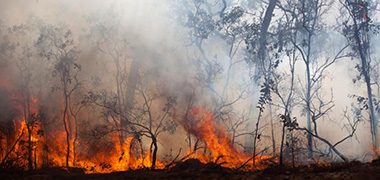
This role has a moderate level of AI exposure. AI can enhance efficiency for some tasks, but this job still relies on human skills and decision-making.
Explore all careersA Geoscientist studies the Earth's physical aspects, analysing data on its structure and processes to aid in resource management and environmental protection.
Get qualified to work as a Geoscientist with a course recognised across Australia. Speak to a training provider to learn more.
Browse occupations related to Geoscientist



A Geoscientist studies the physical aspects of the Earth to understand its structure, composition, and processes. You might work in various settings such as laboratories, field sites, or offices. Geoscientists focus on areas like mineralogy, petrology, and paleontology, conducting research and analysing data to inform resource management, environmental protection, and land use planning.
Geoscientists play an essential role in understanding and preserving our planet. You’ll need to be analytical and detail-oriented, with strong problem-solving skills. You’ll collaborate with other scientists and stakeholders to ensure accurate and useful findings, contributing to sustainable practices and informed decision-making in environmental and resource management.